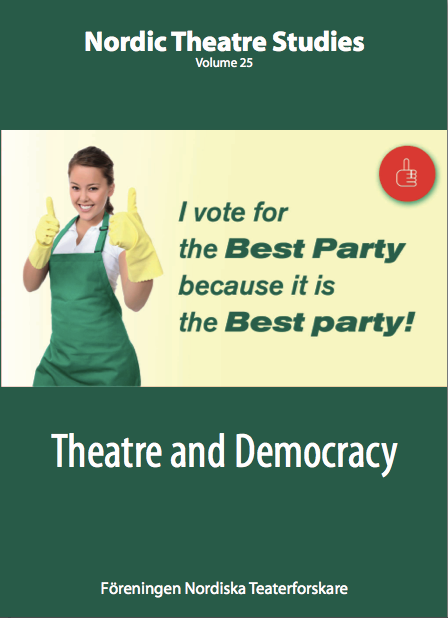Being Actors with Learning Disabilities in a Democratic Perspective
DOI:
https://doi.org/10.7146/nts.v25i1.110897Abstract
The Nordic welfare model is based upon the democratic value of the equal rights of all citizens to live a dignified life. In 1991, a decisive reform in Norway transferred the responsibility for people with learning disabilities from central state and county governments to the local municipality where they were born. The intention was to give them the same rights and obligations as other citizens, and the large segregated residential institutions, the asylums, were closed down. In this article we will share our experiences from working within Teater nonSTOP, a political theatre employing fifteen professional actors with learning disabilities.
The theatre is now owned by the local municipality, following a three-year trial period during which we worked as project leaders responsible for conducting research and documenting the activities at the theatre. In this article we draw on the theories of Pierre Bourdieu and Jacques Rancière in a discussion of the ways in which the struggle for equality affects the subjectification process of the actors at Teater nonSTOP. With reference to three different performances we ask the questions: in what way was equality an issue, and what were the artistic consequences of choosing equality as a dramaturgical point of departure?
Downloads
Published
How to Cite
Issue
Section
License
The copyright belongs to the authors and Nordic Theatre Studies. Users can use, reuse and build upon the material published in the journal but only for non-commercial purposes. Users are allowed to link to the files, download the files, distribute the files on a local network (preferably by links), upload the files to local repositories if their institutions require them to do so, but not republish the files without proper agreements with the journal and the author.

